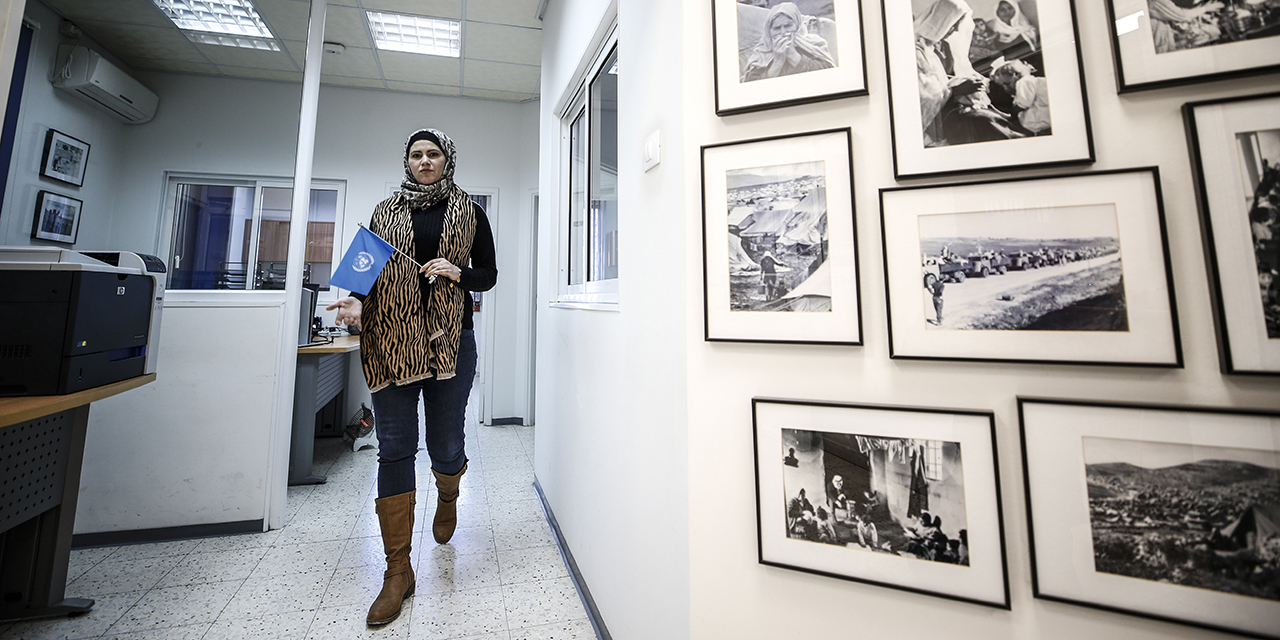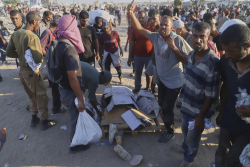
The United Nations Relief and Works Agency for Palestine Refugees in the Near East (UNRWA) has long played a counterproductive role in the Israeli–Palestinian conflict. The agency has perpetuated the crisis by redefining refugee status exclusively for Palestinians—keeping alive the notion of a “right of return” that many interpret as a path to Israel’s destruction—and by distributing educational materials that glorify terrorism against Jews.
Recent revelations have exposed the extent of UNRWA’s involvement not just in inciting violence but in facilitating it through Hamas-linked affiliates in Gaza. Israeli intelligence reports indicate that UNRWA staff directly participated in the October 7 attacks, including hostage-taking and the abduction of dead bodies. On social media, some of the agency’s teachers celebrated the attacks, and its facilities reportedly housed Israeli captives. Most alarming, UNRWA infrastructure—funded by international donors—was allegedly used to support Hamas’s tunnel networks and command centers.
Finally, a reason to check your email.
Sign up for our free newsletter today.
Victims of the UNRWA-Hamas alliance have filed suit in U.S. federal court, seeking redress from the agency for allegedly aiding and abetting Hamas before, during, and after the October 7 attacks. Under U.S. law, federal courts are authorized to hear civil cases brought by noncitizens for injuries resulting from violations of international law or U.S. treaties, as long as some element of the violations occurred on American territory. But Siman Tov v. UNRWA, a case filed in 2024, raises a novel and disturbing question: What happens when violations of international law are committed not by a rogue actor but by an agency of the United Nations itself? The case underscores the unprecedented nature of UNRWA’s alleged entanglement with Hamas—and the legal and moral challenges that follow.
UNRWA moved to dismiss the lawsuit, claiming immunity under the Convention on the Privileges and Immunities of the United Nations, which gives the UN “immunity from every form of legal process” unless explicitly waived. The Biden administration filed a statement supporting the immunity claim. Though the Trump administration has been rhetorically tough on UNRWA, it has yet to reverse the government’s stance.
Even support from the executive branch may not be enough to bail out UNRWA, though. One threshold question for the Southern District of New York to consider is whether the UN’s convention covers agencies like UNRWA. While the convention contemplates suits against the UN itself—its representatives, officials, and experts—it is not clear whether UNRWA enjoys the UN’s forcefield protection.
Distinguishing between the UN and its agencies makes good sense—especially in questions of legal immunity. The two are fundamentally different: the UN serves as a neutral forum for diplomacy and debate, functioning much like a governmental institution; UNRWA, by contrast, is an activist organization, dedicated to advancing a specific political cause.
Immunity applies to the UN for much the same reasons it protects sovereign states. Political bodies require broad freedom to debate, negotiate, and govern. When we enter treaties with sovereign nations, we do so with the understanding that they have internal checks—for example, opposition parties, courts, and democratic institutions—to address wrongdoing. Respecting those processes means assuring other sovereigns that they won’t be dragged into our courts over their political decisions.
Those justifications don’t extend to organizations like UNRWA, which is not a diplomatic body. UNRWA operates in the field, not in deliberative chambers. Its function is practical and programmatic, not political or sovereign. Even before considering its alleged ties to Hamas, the appropriate framework for evaluating UNRWA’s conduct is corporate, not diplomatic—and corporations, whether for-profit or nonprofit, are not immune from litigation.
Immunity looks more like impunity when one examines UNRWA’s role in Gaza. The agency serves a single population and disseminates a specific political narrative. In practice, its leadership doesn’t answer to courts or political processes—or, apparently, to the UN—but to Hamas, the organization within which it is embedded in Gaza, and without whose approval it cannot undertake even its legitimate projects. UNRWA inserted itself into a territory controlled by a ruthless totalitarian regime, with no safeguards to maintain its independence. Unsurprisingly, it has been captured by Hamas—a charitable reading of the situation. Without the possibility of lawsuits, there is no mechanism to force accountability or correct course.
Those who value American sovereignty should be alarmed. When the U.S. extends immunity by treaty, it does so with the expectation of reciprocity—shared responsibilities, accountability, and avenues for redress. UNRWA offers none of that. Instead, it seeks the privileges of sovereignty—including legal immunity and billions in funding—without the corresponding obligations.
The question before the courts isn’t just whether UNRWA qualifies for immunity under existing law, though that’s significant. The deeper issue is whether the United States should continue treating international organizations as if they were sovereign entities—when in reality, many have become unaccountable slush funds for malign actors.
Photo by Saeed Qaq/Anadolu via Getty Images
City Journal is a publication of the Manhattan Institute for Policy Research (MI), a leading free-market think tank. Are you interested in supporting the magazine? As a 501(c)(3) nonprofit, donations in support of MI and City Journal are fully tax-deductible as provided by law (EIN #13-2912529).
Source link

















